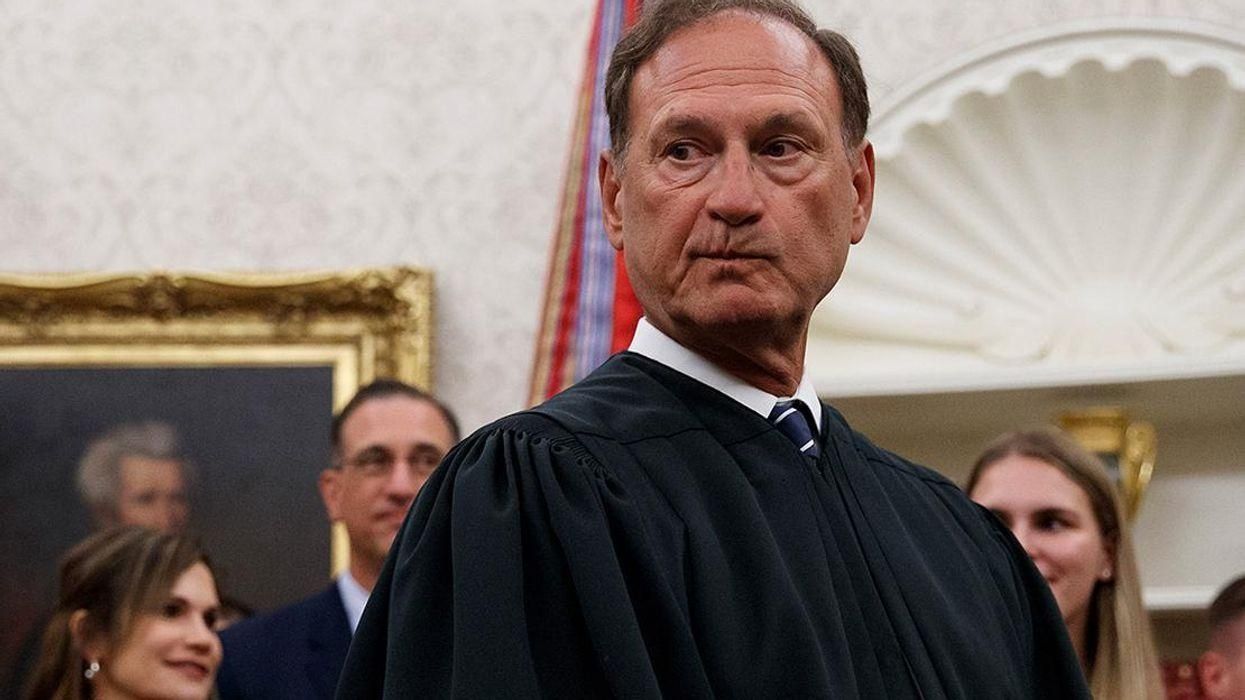How Alito’s 'disingenuous concern for democratic participation' opened a Pandora’s box: analysis

U.S. Supreme Court Justice Samuel Alito (image via Creative Commons)
February 23, 2024 | 09:29AM ETBank
After the Alabama Supreme Court ruled, on February 20, that frozen embryos were "children" and that harming them in any way — even by accident — is a criminal offense, the University of Alabama at Birmingham Health System (Alabama's largest hospital) immediately ceased IVF (in vitro fertilization) treatments. Dr. Serena Chen of Doctors for Fertility told The Guardian that the Alabama ruling is "literally criminalizing standard medical care" and "legislating malpractice."
In a scathing opinion column published on February 23, the New York Times' Jamelle Bouie emphasizes that the U.S. Supreme Court's 2022 ruling in Dobbs v. Jackson Women's Health Organization (which overturned Roe v. Wade after 49 years) paved the way for the widely criticized Alabama decision. And Bouie is especially critical of Justice Samuel Alito, arguing that Alito's reasoning in Dobbs helped open a Pandora's box of civil liberties abuses.
"It should be said here that the (Alabama Supreme Court) majority's decision was possible only because of Dobbs, since to free states to outlaw abortion is also to free them to touch an even larger set of rights and freedoms," Bouie warns. "That's all the more true because the goal of the anti-abortion movement was not to return the question to the states, but to outlaw the practice, as well as roll the clock back on reproductive freedom writ large."
READ MORE: GOP strategist predicts Alabama IVF ruling will hurt Republicans 'badly' in 2024 election
In Dobbs, Alito touted the overturning of Roe v. Wade as a victory for states' rights. But Bouie argues that Alito's "disingenuous concern for democratic participation…. did not just open the door to new abortion restrictions," but also, "took aim at broader rights."
Those rights, Bouie adds, include everything from IVF to access to contraception to transgender rights.
In fact, U.S. Supreme Court Justice Clarence Thomas has said the High Court should "reconsider" Griswold v. Connecticut, the 1965 right-to-privacy ruling that made access to contraception a right for married couples.
Bouie writes, "Fetal personhood also touches contraception, potentially outlawing those forms of hormonal birth control that prevent the implantation of a fertilized egg into the uterine lining…. It is not a coincidence that the lawmakers spearheading the assault on abortion are also the lawmakers spearheading the assault on other forms of bodily autonomy — like the right of transgender Americans to exist in public as themselves…. Samuel Alito wanted the public to believe that he was striking a blow for democracy when he led the Supreme Court’s conservative majority to overturn Roe v. Wade. But the truth is that the path away from abortion rights is less a move toward greater freedom than it is a step toward its negation."
READ MORE: Nikki Haley: Frozen embryos are 'babies'
Jamelle Bouie's full New York Times column is available at this link (subscription required).